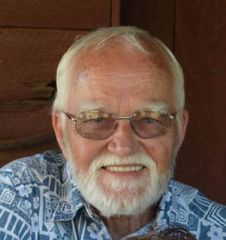
Translating from one language into another is always a challenge but it’s something that I’ve been doing off and on for some forty-five years. I’m talking about translating Bible passages from Hebrew or Greek as part of my sermon preparations. These days I’m doing a different kind of translating. My brother has been typing out for the archives some hand-written minutes from the early years of our churches. A problem he came across was that for the first few years of the Reformed Churches of Australia the minutes were all written in Dutch. In a moment of foolishness I agreed to translate them for him (fifty-three pages done, eighty to go!).
Interestingly, this labour of love has given me cause for some reflections – something I thought I might share in a couple of blogs.
Lesson number-one: people are people and we all have our foibles and weaknesses. Not surprisingly then already in these very earliest minutes Church Council spent a significant amount of time dealing with people problems. Sometimes they were relatively minor problems: why have brother and sister Vandermember not been attending Lord’s Supper? At other times they were serious enough to cause some major dramas, for example when personality problems led to a rift between the Church Council and its Board of Management and things deteriorated to the point that the Committee of Management was relieved of its duties.
Reading between the lines it is obvious that there were some very strong willed people amongst those early migrants – the founding members of the Christian Reformed Churches of Australia. Speaking candidly, some of the names I came across in these minutes, in the context of controversy, were names I remember from later church life too, where those very same names still tended to be associated with controversy.
There’s a certain strength in being a ‘strong-willed person’. It may lead to some tensions but it also leads to an energy and vibrancy where things get done.
The negative side certainly causes problems. Many years ago I had a colleague in the local Ministers’ Fraternal who said to me, “John, I’ve got this Dutchman in my congregation. How do you cope when half your church is made up of them?” I pointed out to my friend that it generally took a certain kind of person to migrate. A strong-willed person was much more likely to start again on the other side of the world than a hesitant and shy person. He accepted my ‘excuse’ but went on to say that his problem with this persona was particularly that he was never wrong.
And there’s the rub. Being a strong-willed person and having firm opinions is wonderful. The church needs people like that. But never being wrong is hugely problematic. Someone once jokingly remarked: “I wouldn’t say I am never wrong. Why, I recall very clearly an instance when I was wrong. That was when I thought I was wrong but I wasn’t.”
Never being wrong causes issues in marriages. It’s always the other person’s fault. And before too long there is another separation and divorce. Never being wrong causes issues with one’s children. I still recall the young man who lamented to me that he had grown up in a home where the Father was never wrong. He had never, ever heard his father say, ‘Sorry!’
Sadly, these people often discover later in life that never being wrong is a lonely place to be.
I began by saying that lesson number-one is that people are people and that we all have our foibles and weaknesses. The difficulty is that people who are never wrong will loudly affirm that they are not perfect but sadly they are unable to see the very specific way in which that is true for them.
Dutch migrants didn’t have a monopoly in always thinking of themselves as being right. That’s a widespread human fault. It’s a manifestation of pride and a lack of spiritual maturity. God is the only one who is never wrong. Even the Pope’s claim to infallibility is spurious. By all means let’s be firm in our opinions but let’s be humble enough to allow for the possibility that in some instances we do get it wrong.
John Westendorp
